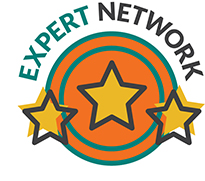India's Biopharma Innovators Tackle COVID-19 Vaccine Supply Worldwide
By Gunjan Bagla, Amritt Inc.
 At the BIO International Convention in San Diego in June, I asked 19 American biotech CEOs a simple question before one could give me the right answer: “Who is the largest worldwide maker of vaccines by volume?” It’s not Pfizer, Moderna, Johnson & Johnson, GSK, or AstraZeneca.
At the BIO International Convention in San Diego in June, I asked 19 American biotech CEOs a simple question before one could give me the right answer: “Who is the largest worldwide maker of vaccines by volume?” It’s not Pfizer, Moderna, Johnson & Johnson, GSK, or AstraZeneca.
100 miles from India’s largest city, Mumbai, on the Deccan Plateau, is Pune, known for automotive manufacturing and for its numerous colleges. It is also home to Serum Institute of India, currently the largest maker of vaccines in the world. Founded in 1966 by Dr. Cyrus Poonawalla, the company is currently run by his son, Adar. The company produces over 1.5 billion doses of vaccines for diphtheria, tetanus, pertussis, Hib, BCG, r-hepatitis B, measles, mumps, and rubella each year. It has a license to make the Oxford Astra Zeneca vaccine, which it markets as Covishield and so far has delivered over a billion doses. In addition, the company has a license from Gaithersburg, MD-based Novavax to manufacture its recombinant spike protein nanoparticle vaccine for COVID-19.
In addition to the Serum Institute of India, there are more Indian companies who are contributing significantly to the global COVID-19 vaccine supply.
Biological E, Ltd.: A Key Player
A few days after the BIO International Convention, I was at the security gate of a 69-year-old privately held Indian company, Biological E, Ltd. in Hyderabad, 300 miles across the Deccan. “You must be from J&J,” the guard assumes, looking at my American passport. A reasonable assumption, perhaps, since the 4,500-employee company has already produced over 400 million doses of the Covid vaccine under license from Janssen, the J&J subsidiary, at its FDA-approved plant here. It is a viral vector vaccine based on a human adenovirus that has been modified to contain the gene for making the spike protein of the SARS-CoV-2 virus that causes COVID-19. The vaccine is attractive in resource-constrained locations since it requires only one dose and does not need to be stored frozen.
In addition, this company has also produced 56 million doses of another Covid vaccine. Dubbed “The World’s COVID-19 Vaccine,” it uses a traditional recombinant protein-based technology that will enable its production at large scale, making it widely accessible to inoculate the global population. The initial construct and production process of the vaccine antigen was developed at Texas Children’s Hospital CVD, led by co-directors Drs. Maria Elena Bottazzi and Peter Hotez and in-licensed from BCM Ventures, Baylor College of Medicine’s integrated commercialization team. In a letter to the Norwegian Nobel Committee, Congresswoman Lizzie Fletcher (D-TX) nominated the duo for the 2022 Nobel Peace Prize for their work to develop and distribute a low-cost COVID-19 vaccine to people of the world without patent limitation.
Biological E is selling this product at under $3 per dose and it has been used on Indian children so far. Unlike the mRNA vaccines, this product can be stored at 36 to 40 degrees Fahrenheit. In Hyderabad, the company has produced over 3 billion vaccines of all kinds over the last five years and aspires to become the largest vaccine maker on the planet by 2025. The company claims that one in five children worldwide is vaccinated with its products against killers such as tetanus, diphtheria, measles, rubella, and typhoid.
Bharat Biotech: Hoping To Contribute To The North American Supply
According to USA Facts, about 30% of American children ages 12 to 17 have not received any Covid vaccine and about 63% of kids ages 5 to 11 are still completely unvaccinated. Even among adults, fully 25% of men have not received any vaccine. Part of the vaccine hesitancy is based on concerns about the new mRNA technology. Now a small Pennsylvania company is hoping to bring a vaccine from India that some Americans may be willing to try on themselves or their children in the future. Ocugen, of Malvern, PA (Nasdaq OCGN), has exclusive North American rights for Covaxin from Bharat Biotech of Hyderabad, India. Bharat Biotech is the third largest maker of vaccines in India.
“Ocugen is conducting a Phase 2/3 immunobridging study in the USA to evaluate the comparability of the immune response between the U.S. adult demographic and a Phase 3 clinical study conducted in India. In addition, Ocugen plans to initiate booster and safety studies in the U.S., subject to discussion with FDA to support Biological License Application and approval in the U.S. market,” says Arun Upadhyay, SVP of the company. Indeed, Bharat Biotech just published a promising peer-reviewed study in The Lancet Infectious Diseases. Bharat Biotech’s product is a whole inactivated virus-based COVID-19 vaccine developed in collaboration with the Indian Council of Medical Research and its National Institute of Virology. Over 110 million Indians have received this vaccine.
Premas Biotech & Zydus Cadila: Contributing To The African Supply
In countries such as Nigeria, Sudan, and Tanzania, vaccination rates hover around 15 percent today. Stepping up to assist are supply chain challenged Indian companies that are continuing to innovate products for special needs.
For example, Premas Biotech, another Indian company, has developed a novel triple antigen virus-like particle vaccine candidate that incorporates the three surface proteins – S, E, and M. Such a combination, the company claims, not only has a much broader protection but also can be easily adapted to mutations of the SARS COV-2 virus. The vaccine is developed in two dosage forms – the oral Covid vaccine, which is developed in collaboration with its partner Oramed of Israel, and an intramuscular injectable. The oral form reduces dependence on cold chain, is easy to administer, and can be easily scaled up to millions of doses in a short time. The oral Covid vaccine is currently in Phase 1 trials in South Africa, where results are expected by the end of 2022.
In the western state of Gujarat, India, a large pharma maker has developed the world’s first DNA-based vaccine against Covid. This product from Zydus Cadila can be stored at room temperature and is delivered using needle-free Pharmajet technology – both factors may make it attractive for pediatric use in Africa. The product has received emergency use authorization in India, but no volume orders yet. It is a three-dose vaccine, administered on day zero, day 28, and day 56. According to Zydus Cadila, the plasmid DNA platform provides ease of manufacturing with minimal biosafety requirements (BSL-1) and does not have any problem associated with vector-based immunity.
Innovation from India is a driving force in bringing the world back to normal after more than two years of disruption by this once-in-a-century pandemic.
About The Author:
 Gunjan Bagla is CEO of Amritt, Inc., a California-based consulting firm that helps Western companies do business in India. Organizations that have benefited from Amritt's expertise include Becton Dickinson (BD), Biocom California, Combe, Clorox Healthcare, Johnson & Johnson, iHealth, and Roche. He writes about India for the Harvard Business Review and for Med Device Online. He holds a mechanical engineering degree from the Indian Institute of Technology Kanpur and an MBA with honors from Southern Illinois University, Edwardsville. Gunjan is a frequent speaker on subjects relating to India’s healthcare, biotech, and medical device ecosystem. You can reach him on LinkedIn.
Gunjan Bagla is CEO of Amritt, Inc., a California-based consulting firm that helps Western companies do business in India. Organizations that have benefited from Amritt's expertise include Becton Dickinson (BD), Biocom California, Combe, Clorox Healthcare, Johnson & Johnson, iHealth, and Roche. He writes about India for the Harvard Business Review and for Med Device Online. He holds a mechanical engineering degree from the Indian Institute of Technology Kanpur and an MBA with honors from Southern Illinois University, Edwardsville. Gunjan is a frequent speaker on subjects relating to India’s healthcare, biotech, and medical device ecosystem. You can reach him on LinkedIn.
